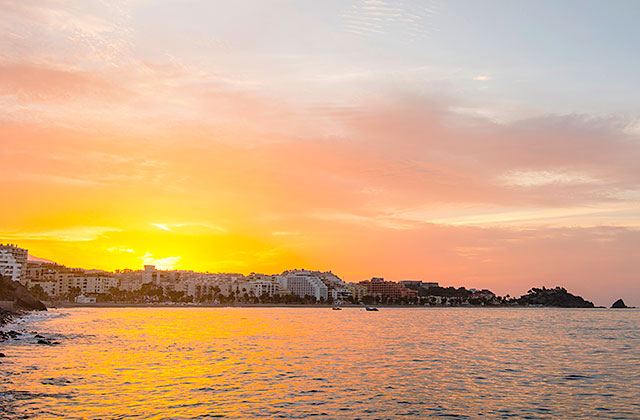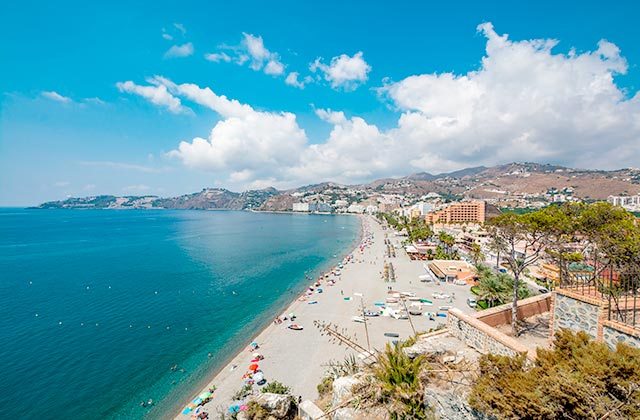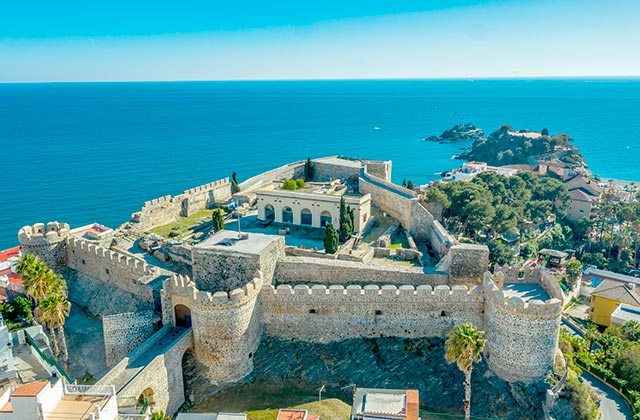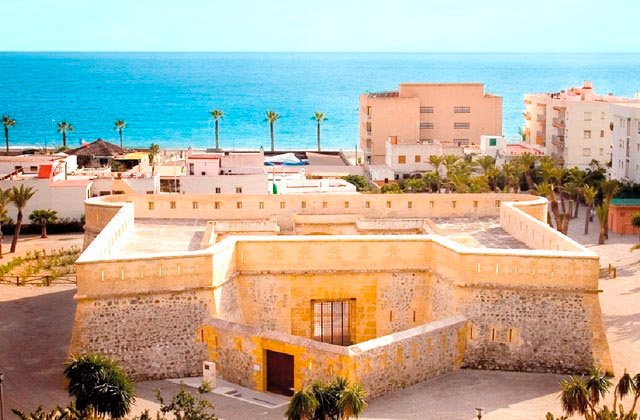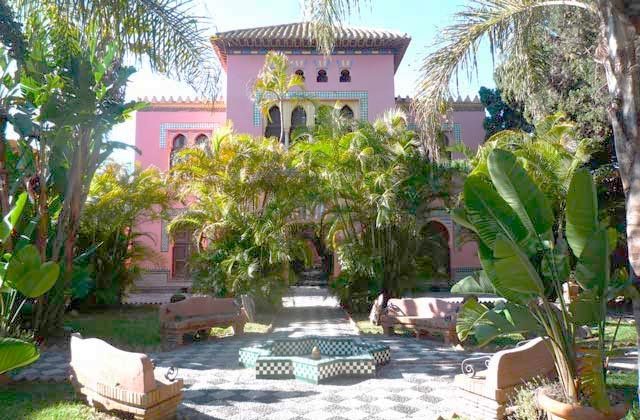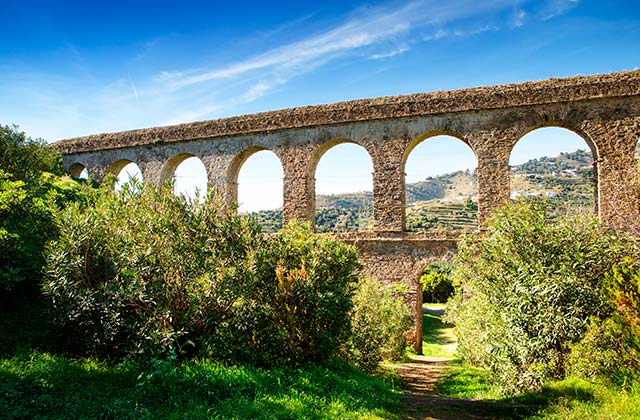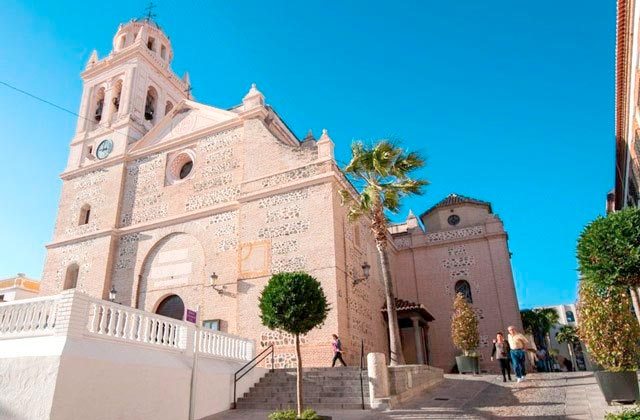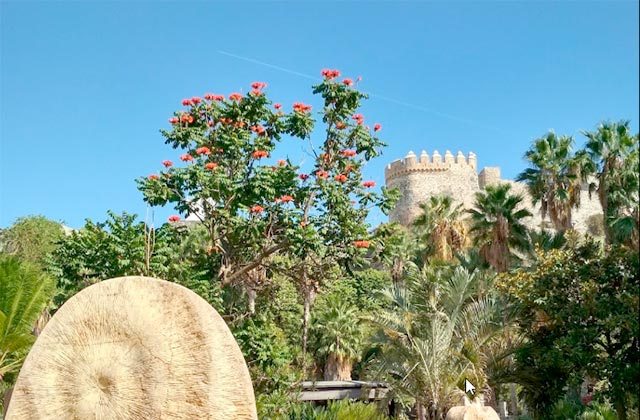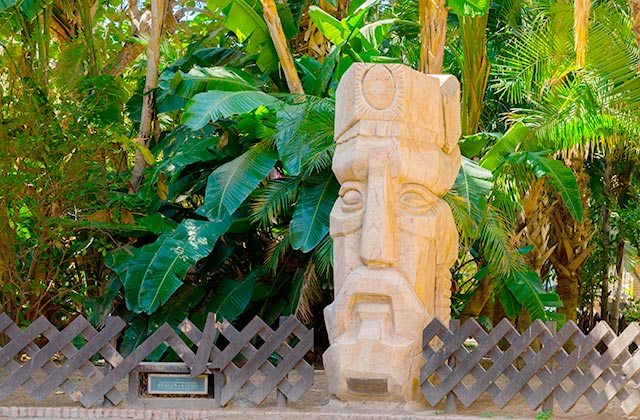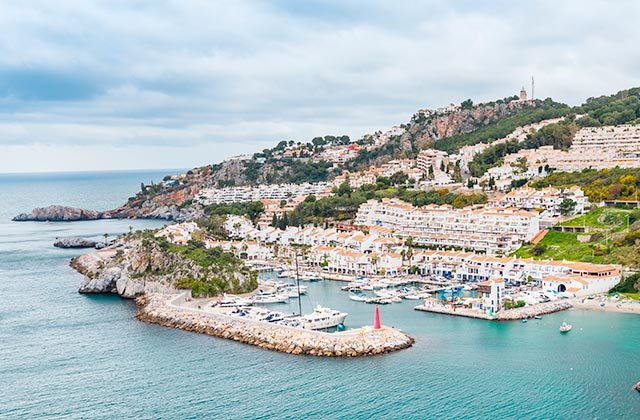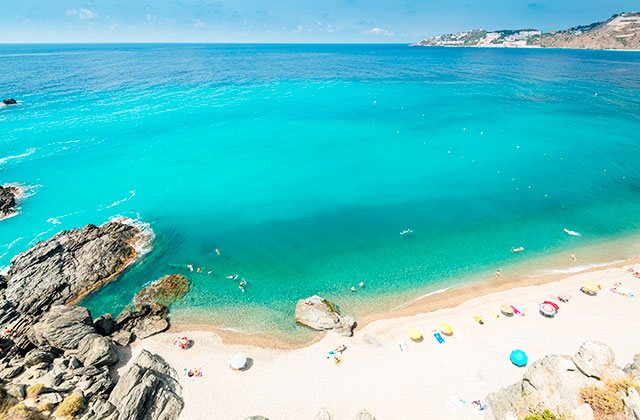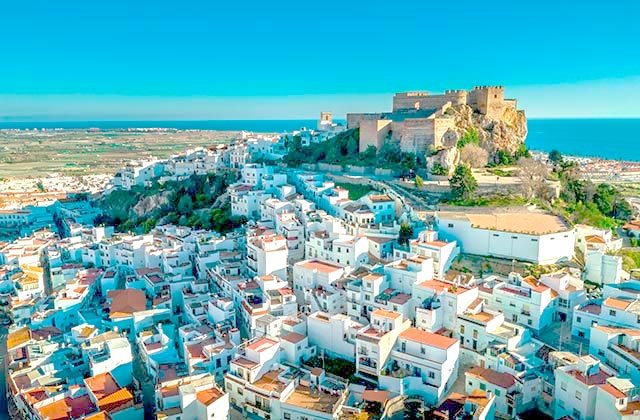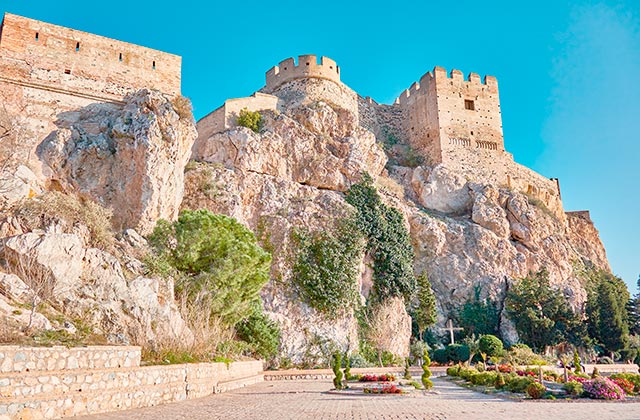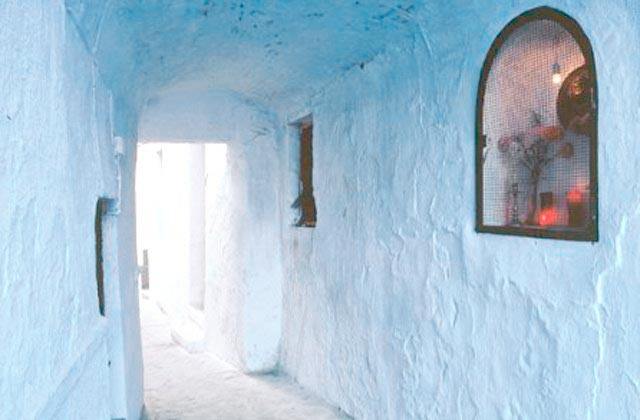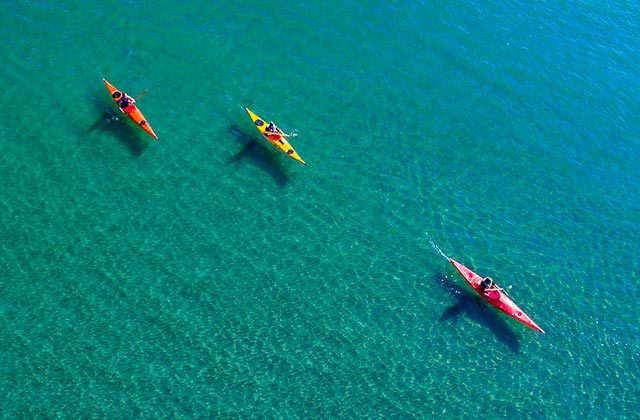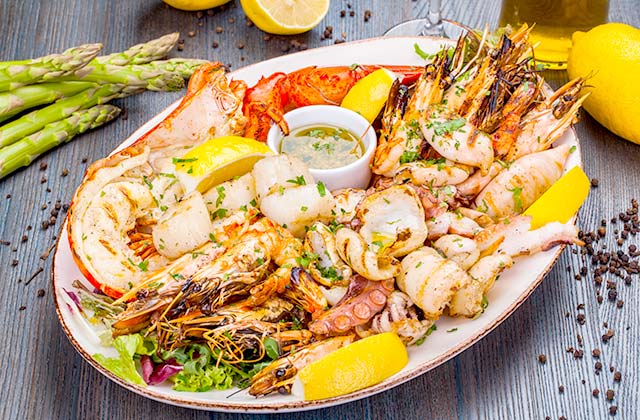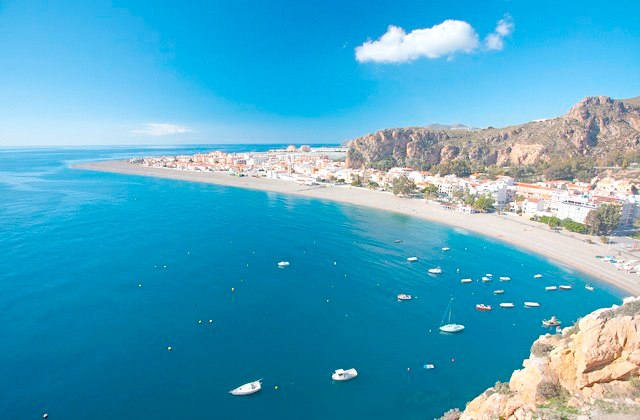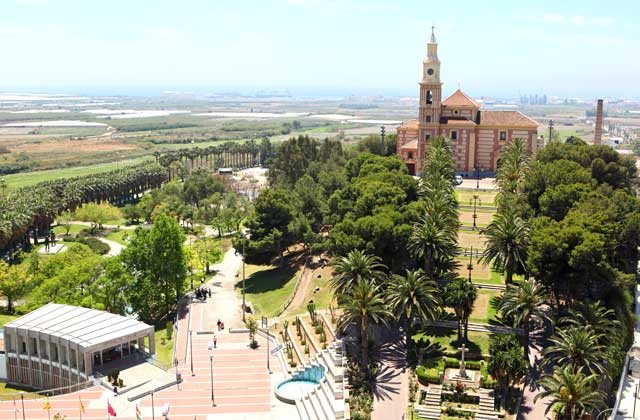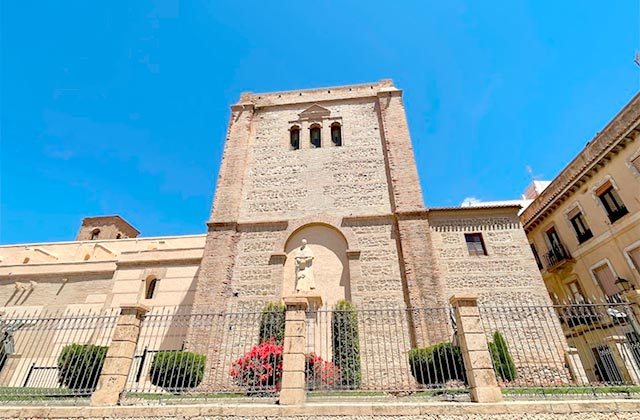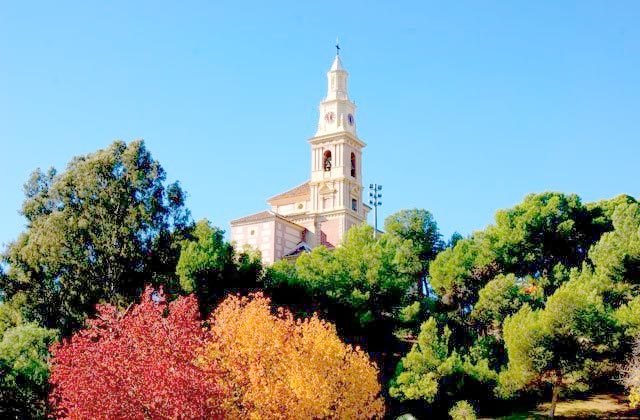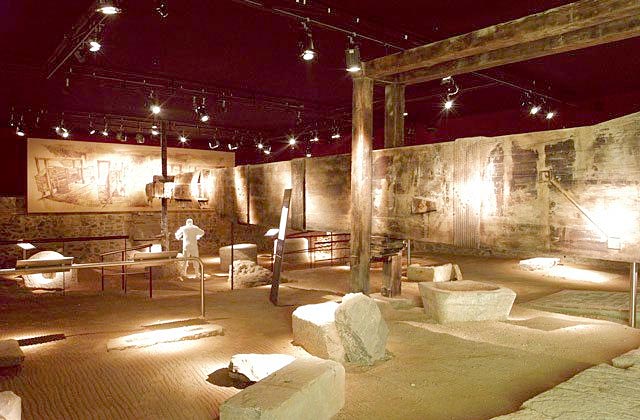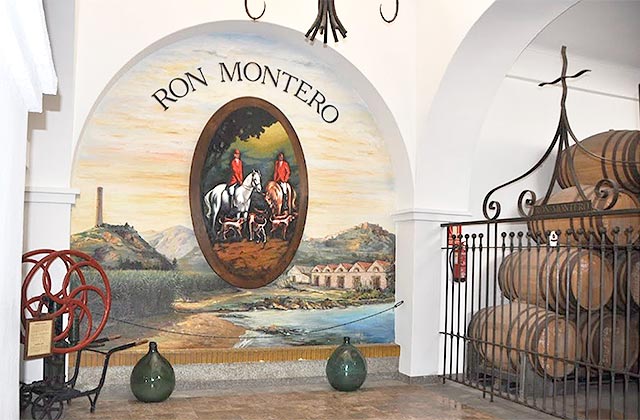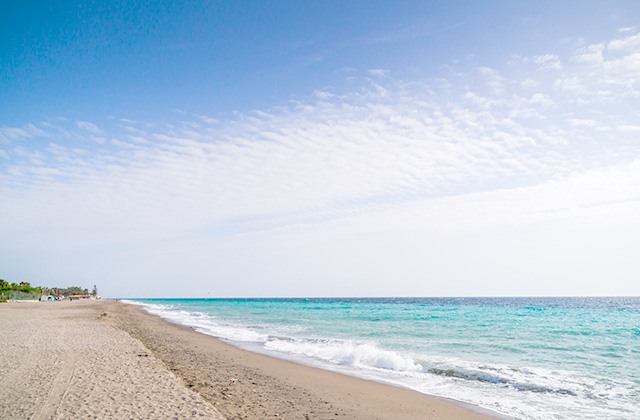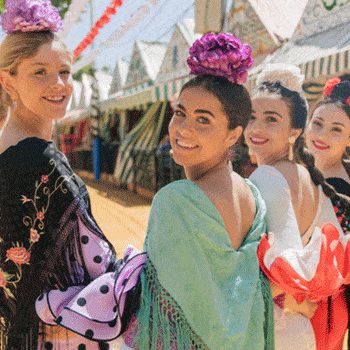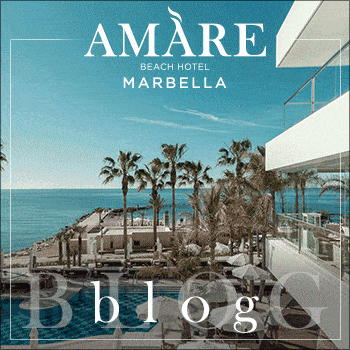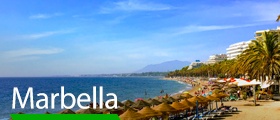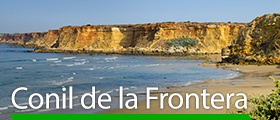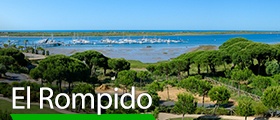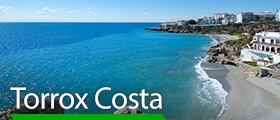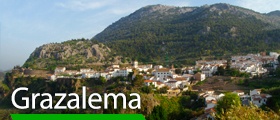
THINGS TO SEE AND DO IN ALMUÑECAR, SALOBREÑA AND MOTRIL
Almuñécar, Salobreña and Motril are the most touristic municipalities of Granada and they are part of the so-called Costa Tropical. The Mediterranean coastline covers 72 kilometres. It has numerous small coves and crystal clear beaches and an average temperature of 200C throughout the year.
These three coastal municipalities offer to tourism a wide variety of things to see and do. These are ideal places for people that love sun and beaches, nautical and aquatic sports, and cultural tourism.
Almuñécar Tourism
This municipality is home to different interesting places for cultural tourism. The tour of its historic and artistic heritage will teach you about the past and present of this town of the Costa Tropical.
Things to see in Almuñécar
Here is a list of interesting things to see in Almuñécar:
- Castillo de San Miguel (Castle of Saint Michael). Its neoclassical pavilion stands out; it is home to the City’s Museum, also called in Museo Histórico Turístico. – Google Maps
- Castillo de la Herradura (Castle of La Herradura). Its construction was ordered by Charles III in the eighteenth century. It is located at the Playa de La Herradura Beach. – Google Maps
- Cueva de Siete Palacios (Cave of Seven Palaces). Nowadays, it is the headquarters of the Archaeological Museum of Almuñécar. – Google Maps
- Palacete de La Najarra. It is the headquarters of the Patronato Municipal de Turismo de Almuñécar and the Office of Touristic Information of the Municipality. – Google Maps
- Columbario romano Torre del Monje. It is a funeral pantheon of the first century a.d., located in the neighbourhood of Torrecuevas. – Google Maps
- Roman Bridge. It is located in the neighbourhood of Cotobro. – Google Maps
- Roman aqueduct. It was declared Site of Cultural Interest. – Google Maps
- Iglesia de la Encarnación Church. This is the first baroque temple of the province of Granada. It was designed by King Philip II and it features a tower designed by Diego de Siloé. – Google Maps
- Iglesia de San José Church. This is the old hermit of La Herradura, where the saint patron of the municipality is worshiped. – Google Maps
For nature lovers, Almuñécar has four spaces of special interest:
- Parque Botánico-Arqueológico El Majuelo (El Majuelo Botanic-Archaeological Park). It has more than 180 specimens that come from all tropical zones. Within the park, there are also the remains of a Roman fish-salting factory. In addition, there is a Centre of Artisan Activities, where people can buy crafts. – Google Maps
- Parque Ornitológico Botánico Loro Sexi (Ornithological and Botanic Park). It has more than 1,500 species of birds such as, pigeons, peacocks, ostriches, parrots, cockatoos, swans, ducks, etc. – Google Maps
- Peña Escrita Natural Park. Here, people can enjoy of a great variety of plants and admire animals in their habitats, such as deer and mountain goats. Take into account that there is a table to try the typical delicacies of the cuisine of Almuñécar. – Google Maps
- Paraje Natural Acantilados de Maro-Cerro Gordo. This maritime and terrestrial park has beautiful cliffs and an interesting variety of flora and fauna. It also features trekking routes. – Google Maps
Things to do in Almuñécar
Among the things to do in Almuñécar, nautical and water sports stand out.
The area of La Herradura is of special interest for the tourists that wish to practice scuba diving and snorkelling at any time of the year.
Another interesting place for tourists who want to practice nautical sports is the Puerto Deportivo Marina del Este.
In Almuñécar, people can also practice adventure activities such as paragliding, canyoneering, trekking and horseback riding.
If you happen to be in Almuñécar, make sure you enjoy their gastronomy. The wide selection of bars and restaurants in the municipality includes salads, meats, and fish accompanied with tropical fruits like mango and avocado.
The Gastronomic Fair of Almuñecar takes place each spring in the El Majuelo.Park.
Another thing to do in Almuñécar is to enjoy the traditional and the newest celebrations.
- Almuñécar Fair. It is celebrated for a week in mid-August. It finishes with the procession of the patron saint and a musical/ firework show.
- La Herradura Fair. It takes place in March, during an entire weekend.
- Barrio de San Sebastián Fair. It is celebrated on May 1st.
- Saint John’s Eve celebrations: On June 23rd and 24th, locals and visitors of Almuñécar gather around the bonfires that are lit at midnight. During the ritual, it is customary to wash your face or to swim in the ocean, to remain beautiful. The city council gives out in Puerta del Mar the traditional bollos de aceite con huevos cocidos as well as paper lanterns, to ask for wishes.
- Barrio de Los Marineros Festival. Celebration of the day of Our Lady of Mount Carmel, with a seaman procession and leisure activities during an entire weekend.
- Barrio de San Miguel Festival. These celebrations take place from September 28th to September 30th.
- Barrio de Torrecuevas Festival. Also known as Fiesta de la Chirimoya, its date matches the celebration of the Virgin of El Pilar, on October 12th, and lasts for 3 days. The schedule of these celebrations consists of popular street parties, contests and tasting of chirimoyas.
Salobreña Tourism
Salobreña is a beautiful white town crowned by an Arab castle from the tenth century. The medieval structure of its old town is still preserved; it has narrow, curvy and hilly streets that mix with white houses decorated with beautiful flowers.
Things to see in Salobreña
The old town of Salobreña is a monument in itself and one of the most attractive ones in the municipality. The most picturesque neighbourhoods are La Loma, La Fuente, El Brocal, and El Albaycín.
Monuments and places to see in Salobreña:
- Arab Castle. A fortress of Phoenician origins and reformed by Romans, Arabs, and Christians. Its high location allows you to enjoy magnificent panoramic views of the town and its surroundings. The most impressive ones are seen from the castle towers. It has a summer auditorium to present plays and other cultural events, such as medieval dinners. – Google Maps
- Iglesia del Rosario Church. This is a temple of Mudejar style, built over a mosque from the sixteenth. – Google Maps
- La Bóveda (Dome). This doorway links the neighbourhood of Albaycín with the old town. – Google Maps
- Mirador del Albaycín Overlook. It is located 98 meters over the Tajo. Here, you are going to get amazing panoramic views. – Google Maps
- Mirador del Postigo Overlook. It is a balcony over the northern area of Salobreña, from which the highest peak of the region can be seen, the “Pico de la Guindalera”, which is 1,072 meters high. – Google Maps
- El Torreón. Remains of the wall located in the neighbourhood of El Brocal. – Google Maps
Things to do in Salobreña
Besides visiting the municipality’s old town and monuments, people can do other fun and interesting things in Salobreña.
Bird watching. There are places in Salobreña where you can watch the different species that cross the sky of the municipality; some of these places are the cliffs in La Caleta, the Tajo de Salobreña, Punta del Rio, Valle de Salobreña Valley and Tajo de los Vados.
Trekking and biking in the different routes and trails along the municipality of Salobreña.
Doing the route of Chirimoya. Trek the Vega de Salobreña and learn everything about the route.
Practicing nautical and aquatic sports such as surfing, kitesurfing, kayaking, fishing and scuba diving, among others.
Tasting the delicacies of the gastronomy in Salobreña, such as fish, shrimp, tropical fruits- like chirimoya, avocado or mango. Products that serve as the basis for numerous traditional and innovative recipes.
Motril Tourism
Motril is the second most important community of the province of Granada. One of the most interesting tourism destinations for those who seek sun and beach and for those who want to practice sports such as scuba diving and windsurfing, among others.
Things to see in Motril
Churches, interpreting centres, museums and other buildings of historic and artistic interest are part of the things to see in Motril.
- Santuario de Nuestra Señora de la Cabeza (Sanctuary of Our Lady of La Cabeza). This temple was built over the ruins of a Nasrid castle and it has undergone different renovations throughout history. – Google Maps
- Iglesia Mayor de la Encarnación Church. It has a Gothic-Mudejar style. It was built over the patio of an old mosque. It was catalogued as Site of Cultural Interest. – Google Maps
- Parque de los Pueblos de América (Park of the People of America). It is located next to the Sanctuary of the Virgin of La Cabeza. It features more than 50 trees as well as exotic and sub-tropical bushes from different places of the American continent. – Google Maps
- Museo Preindustrial del Azúcar (Pre-industrial Sugar Museum). The most important museum in Motril. In a didactic and fun way, it explains the manufacturing and selling process of sugar between the thirteenth and the eighteenth centuries. It still keeps the oldest mill in Europe and an interesting collection of tools. It shows a reproduction in natural scale of the mills and presses, and sugar panel cooking and purging rooms. It is a reflection of the international position that Motril used to have in the field of sugar production. – Google Maps
- Casa de La Palma. Old sugar Factory that was turned into the Centre for Motril’s culture. Its Mudejar style is interesting and its inner garden has different plants and trees brought from America. – Google Maps
- Bodega Ron Montero (Montero Rum Cellar). It was established in 1963 by a family of great tradition in the production of sugar by-products. – Google Maps
- Museo de Historia de Motril (Motril History Museum). It is located in the Casa Garcés and it teaches in an easy way the long history of this municipality of Costa Tropical. – Google Maps
Things to do in Motril
- Agro-tourism route. An ideal proposal for those who love nature and Motril’s typical agricultural products.
- Biking and trekking routes along the municipality of Motril.
- Practicing sports like windsurf, kitesurf, paragliding, golf, snorkelling, and scuba diving among others.
- Enjoying tapas and typical and innovative dishes of Motril’s gastronomy. The quisquillas de Motril, octopus, horse mackerel and tropical fruits are the base of many recipes. Eat avocado salad, horse mackerel and mango mille-feuille, guava and anchovy salad and pickled quince of mango.
- Soak up the nun at any of the town’s crystal clear beaches.
WHERE TO STAY
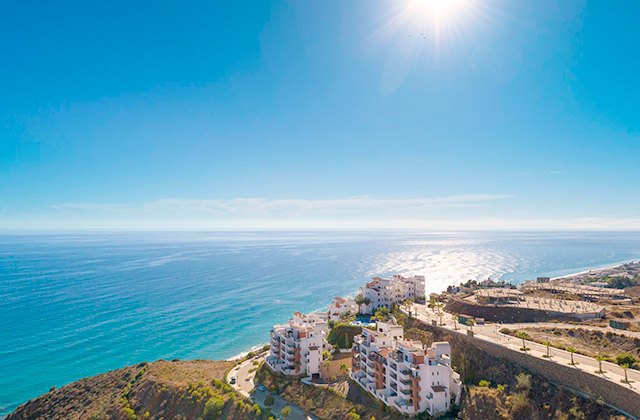
Olée Holiday Rentals
Olée Holiday Rentals apartments are found on a perfect spot on the western Costa del Sol, between Torrox y Nerja, typical Andalucian towns with the best weather in all Europe. The 79 apartments that make up the complex, have air conditioning, a wide living room with satellite TV and modern kitchen equipped with an oven, dishwasher, washing machine and dryer. Some of them have a balcony and wonderful views to the Mediterranean Sea.
